Brazil’s President Luiz Inacio Lula da Silva has worked hard to cultivate a reputation as a staunch defender of the climate. Speaking at his 2023 inauguration, Lula promised to turn his country into “a leader in the fight against the climate crisis”.
And there have been some notable successes: last month, Amazon deforestation hit an 11-year low.
These lofty ambitions will be on full display as Brazil prepares to host the COP30 climate summit in the port city of Belem on the edge of the sprawling Amazon.
Read moreCOP30: Host city Belem is 'at the heart of the issues' and a gateway to the Amazon
But barely three weeks earlier, Brazil's majority state-owned oil giant Petrobas announced that it had received approval to drill exploratory oil wells at the mouth of the Amazon River. The decision had many environmental activists criticising this apparent paradox at the heart of Lula’s climate policy.
“Brazil's presidency of COP30 is hypocritical, as it claims to want to raise climate ambitions while granting a new oil exploration license to its national company,” said Fanny Petitbon, France director of the 350.org clean energy NGO.
“It's completely mind-boggling.”
Brazilian activists were also quick to condemn the decision.
“The approval is an act of sabotage against the COP and undermines the climate leadership claimed by President Luiz Inácio Lula da Silva,” the country's Climate Observatory said in a statement.
What's on the agenda for COP30?
To display this content from YouTube, you must enable advertisement tracking and audience measurement.
One of your browser extensions seems to be blocking the video player from loading. To watch this content, you may need to disable it on this site.
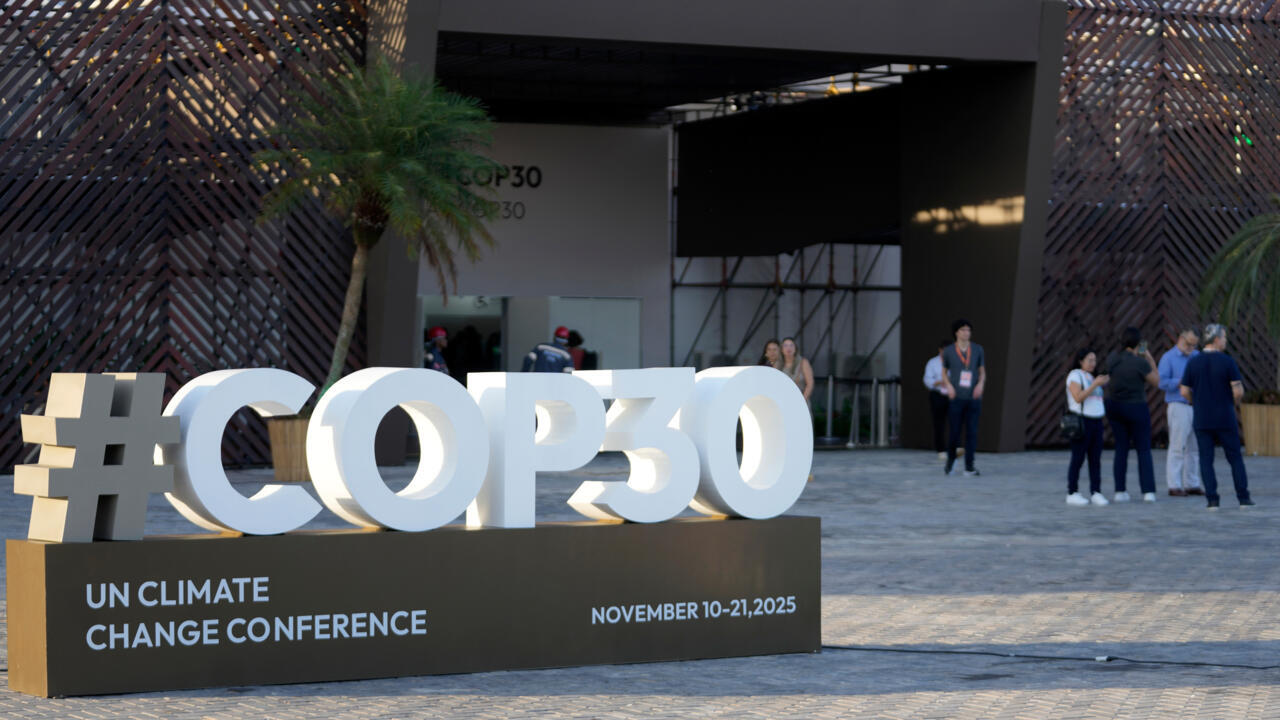
04:55
Black gold
Petrobas has for decades been eyeing this stretch of water in what’s known as the Equatorial Margin, some 500 kilometres from the mouth of the Amazon River. And with good reason – like similar swaths of territory off the coasts of neighbouring Suriname and Guyana, it holds vast reserves of oil. Brazilian authorities estimate that the black gold buried beneath these waters could bring in €46 billion and create more than 350,000 new jobs.
Although the Brazilian Institute of Environment and Renewable Natural Resources (IBAMA) has long baulked at the project, it finally gave its approval after what it described as a “rigorous process” with “more than 65 technical consultations”.
Climate action in a fractured world: Is there a will 'to cooperate in a world full of conflict'?
To display this content from YouTube, you must enable advertisement tracking and audience measurement.
One of your browser extensions seems to be blocking the video player from loading. To watch this content, you may need to disable it on this site.
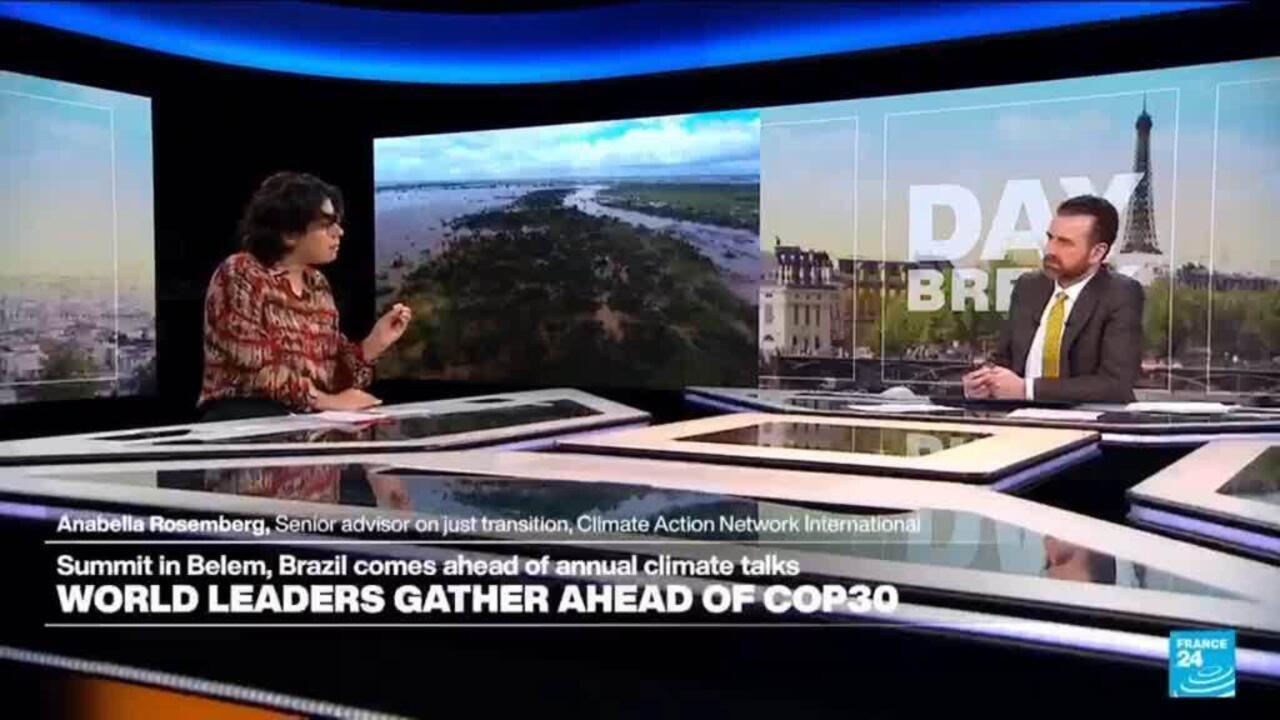
07:24
But the project is far from risk-free, either for the region’s biodiversity or the communities living along the coast. In a technical report published by Brazilian daily Folha de São Paulo, IBAMA found that the drilling could have dire repercussions for the manatees that call the coast home – mammals that are already facing the risk of extinction.
The region is also home to the largest expanse of mangroves in the world – a fragile ecosystem that Brazil Journal said is also threatened by the project. The Equatorial Margin’s coast also harbours three Indigenous lands and six quilombola territories – peopled by the descendants of African slaves – as well as countless fishing villages that would be the first to bear the brunt of any oil spills or other industrial accidents.
Up in smoke
So why was such a project approved under a self-proclaimed climate defender such as Lula?
“This sums up the duality of the Brazilian president, caught between economic and ecological interests,” said Catherine Aubertin, research director at France's Institute for Sustainable Development and International Relations.
With an average of 3.4 million barrels produced every day in 2024, Brazil is the world’s eighth-largest oil exporter. In 2024, crude oil became the country’s chief export, overtaking soybeans and making up 13.3 percent of Brazil’s total exports.
Speaking last year at COP29 in Azerbaijan – another major crude oil producer – Lula said he wanted to continue to increase Brazil’s oil exports to 36 percent by 2035.
Global South charting a greener future with climate solutions sparking economic growth
To display this content from YouTube, you must enable advertisement tracking and audience measurement.
One of your browser extensions seems to be blocking the video player from loading. To watch this content, you may need to disable it on this site.
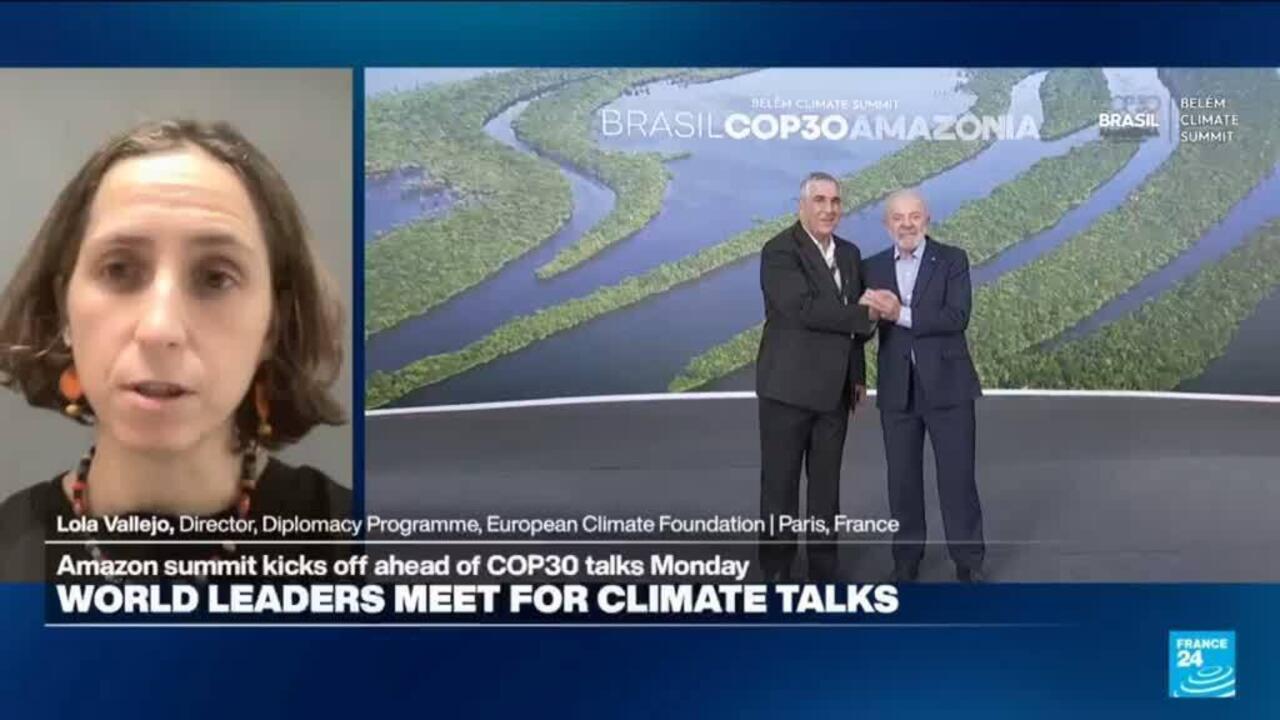
05:41
There’s just one problem. According to projections, Brazil’s oil production will begin to decline from 2030 onwards as its current reserves are depleted. It’s a prognosis that has set off something of a panic in the upper ranks of the Brazilian government as well as the halls of Petrobas.
“The Equatorial Margin is the future of Brazil's energy sovereignty,” Energy Minister Alexandre Silveira wrote in a social media post. “We are ensuring that exploration is carried out with environmental responsibility, in accordance with the highest international standards, generating benefits for the Brazilian people.”
But climate scientists and activists agree that the time for looking for new oil reserves is over. Instead, they say, moving away from fossil fuels – the leading emitters of greenhouse gases – is crucial if humanity is to slow the world’s warming.
Read moreWorld leaders to rally in support of climate action before COP30 summit
According to a Climate Observatory analysis, emissions released by Brazil’s energy sector are likely to rise from 490.6 million tonnes to 558 million tonnes of CO2 by 2050. It’s a far cry from the country’s ambitious promise to reduce its greenhouse gas emissions from 67 percent to 59 percent by the same year.
“It’s a contradiction that the Brazilian president is more or less owning up to,” Aubertin said. “He responds to it by repeating the same argument as other large oil producers: he supports the idea that oil revenue is used to finance the energy transition.”
“Is it contradictory? It is,” Lula conceded in a June 2024 interview with Brazilian radio CBN. “But as long as the energy transition isn’t solving our problem, Brazil needs to make money from this oil.”
Saving the forests
Aubertin stressed that Lula’s track record on climate change is more nuanced than the president’s oil ambitions make it seem.
“Even though Brazil is exporting its oil, it has still reached a very good level in terms of [the sustainability of] its internal energy consumption,” she said. “Eighty-nine percent of its electricity production comes from renewable energy.”
The Brazilian president has also undertaken a range of actions to make good on his climate commitments, Aubertin said. Since 2023, Lula has put in place a national energy transition policy with investment potential of up to €330 billion as well as ratifying a law creating a mandatory carbon market.
But his main victory in the fight to protect the environment has taken place on a different front: the fight against deforestation. Since coming to office, Lula has championed the struggle against illegal logging as one of the most critical goals of his presidency.
Read moreBrazil's Lula urges less talk, more action at COP30 climate meet
He brought back Marina Silva as environment minister, who had already managed to drastically lower the rate of deforestation during Lula’s first two terms (2003-2010). At the same time, the Brazilian president reactivated the Amazon Fund, an international financial mechanism designed to raise money in the fight against deforestation, strengthened regulations and stiffened penalties for illegal logging.
In just two years, the results have been spectacular. Although deforestation affected more than 10,000 square kilometres in 2022, the last year of far-right president Jair Bolsonaro’s term in office, Brazil’s deforestation had been halved by 2023 and continued to fall to close to 4,200 square kilometres in 2024. Outside of the nation’s massive rainforests, deforestation levels also fell in other vulnerable ecosystems such as the Cerrado, the biodiverse savanna south of the Amazon.
Read moreBrazil records biggest annual fall in emissions in 15 years: report
“Deforestation is mainly due to infrastructure construction and agricultural expansion, whether legal or illegal,” said Erin Matson, a consultant at Climate Focus and the author of a comprehensive report published in mid-October on the state of the world's forests.
“Brazil's excellent results show that simply strengthening controls can quickly and drastically reduce deforestation.”
“In the long term, curbing deforestation will only be possible through profound changes to our economic model, as pressure on forests continues to increase in line with global demand for soy, wood and paper,” she added. “But Brazil provides a very good example of how, when a head of state takes action, results can be achieved.”
A president ‘bound hand and foot’
“Lula acts with the leverage that he has,” Aubertin said. With Brazil's Congress dominated by conservatives keen on continued investment in petrol and representatives of agribusiness still carrying significant weight in the halls of power, “he is bound hand and foot and has to deal with a lot of pressures – sometimes contradictory ones”.
Perhaps because of this, Brazil’s agribusiness sector, which is responsible for 30.5 percent of the country's greenhouse gas emissions, seems to have remained untouched by any environmental measures that would cut into its profit margins.
The industry managed to avoid the application of the carbon market law thanks to the support of the Parliamentary Agricultural Front, a powerful legislative bloc that often advocates for the agribusiness industry.
As COP30 begins, it remains to be seen just how Brazil's climate contradictions will be reflected in negotiations. True to form, the Brazilian president seems to have carefully sidestepped the awkward issue of fossil fuels for the moment.
Lula has already made it clear that protecting forests will take pride of place in COP30. He has said he hopes that one of the summit’s major advances will be the adoption of the Tropical Forest Forever Facilities, a new financial mechanism that would compensate countries for preserving their tropical forests – and which advocates say is as a much-needed weapon in the bitter fight against deforestation.
This article has been adapted from the original in French.


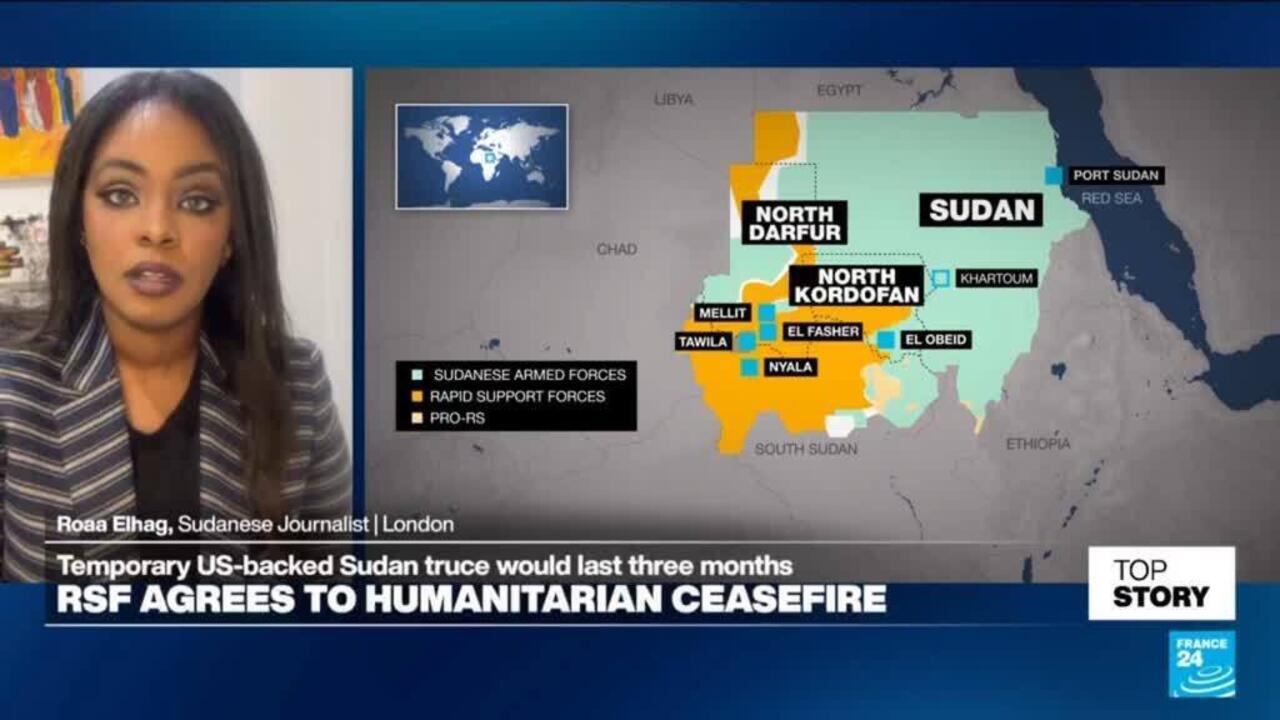
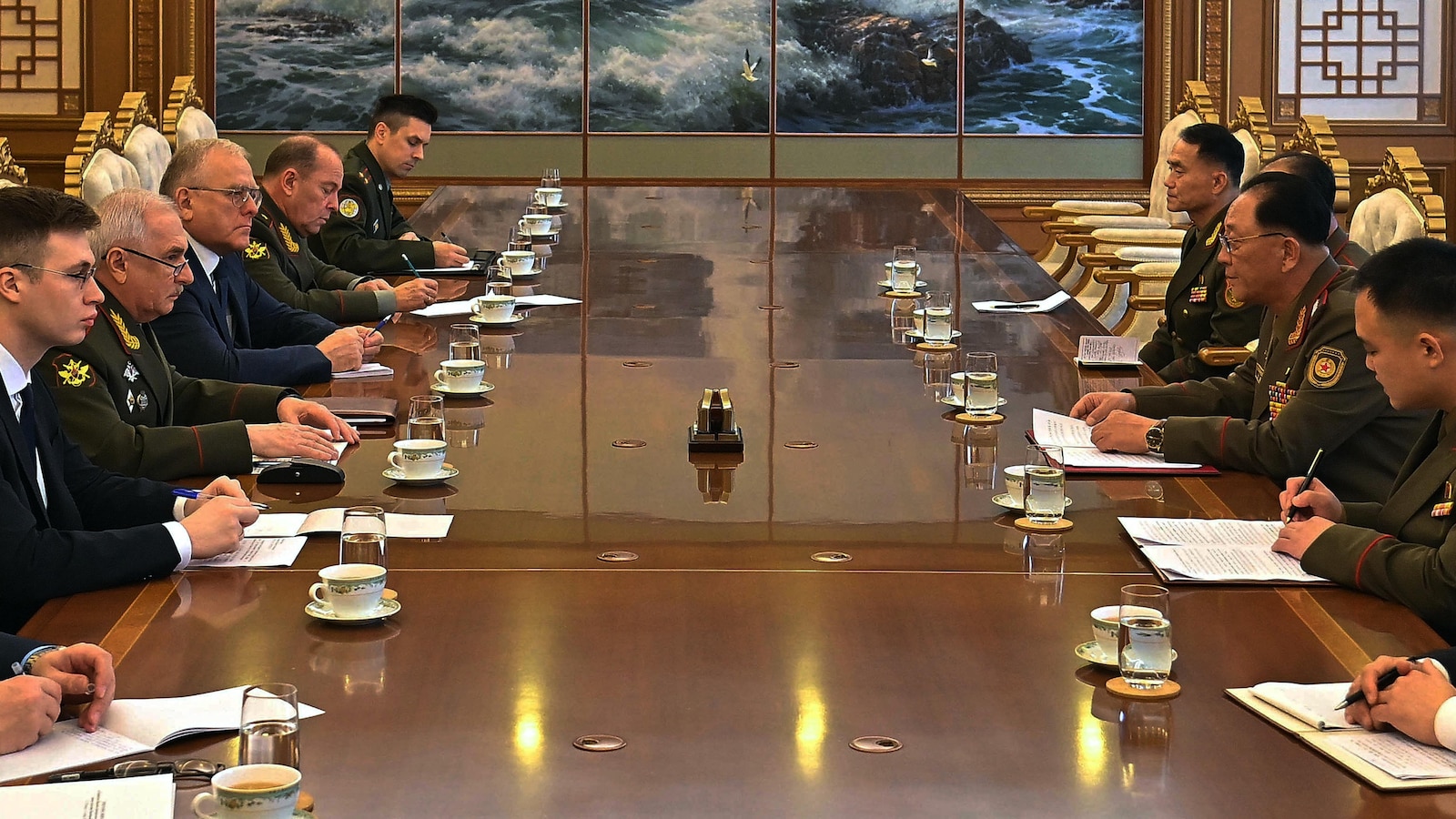




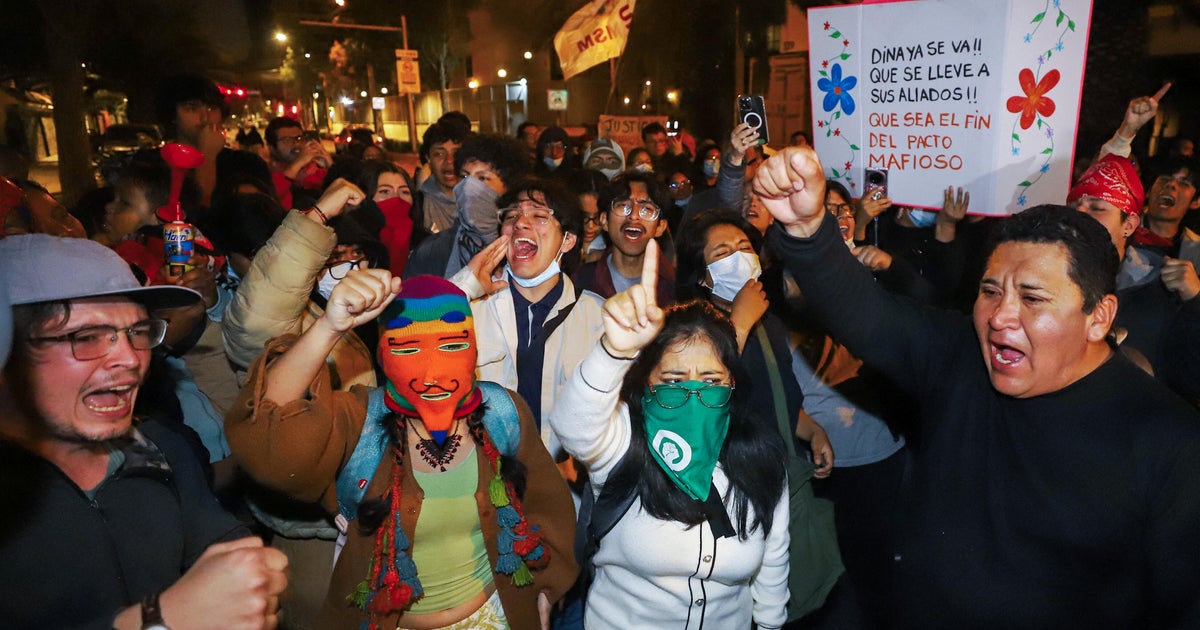


 English (US) ·
English (US) ·